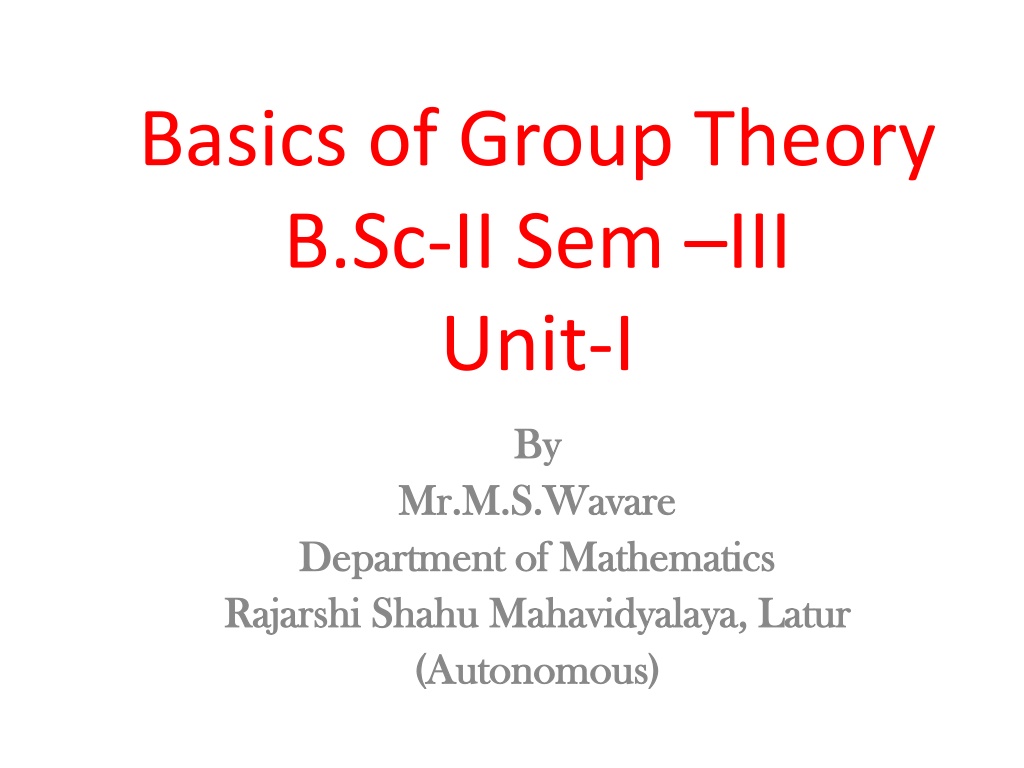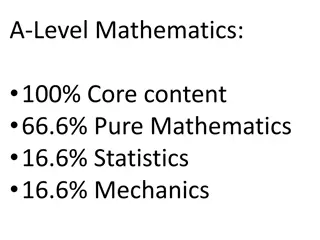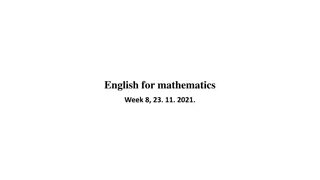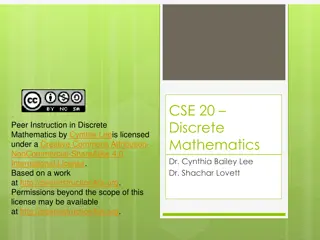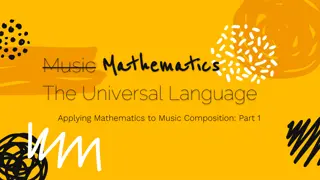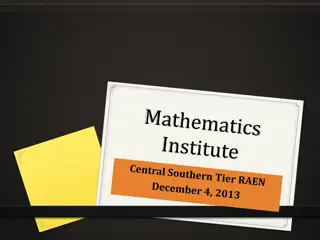Basics of Group Theory in Mathematics
Introduction to sets in mathematics, concepts of semigroup and monoid, definition of a group, examples of subgroups, cyclic groups, normal subgroups, simple groups, and factor groups. Exploring fundamental principles in group theory.
Download Presentation

Please find below an Image/Link to download the presentation.
The content on the website is provided AS IS for your information and personal use only. It may not be sold, licensed, or shared on other websites without obtaining consent from the author. Download presentation by click this link. If you encounter any issues during the download, it is possible that the publisher has removed the file from their server.
E N D
Presentation Transcript
Basics of Group Theory B.Sc-II Sem III Unit-I By By Mr.M.S.Wavare Mr.M.S.Wavare Department of Mathematics Department of Mathematics Rajarshi Rajarshi Shahu Shahu Mahavidyalaya Mahavidyalaya, , Latur (Autonomous) (Autonomous) Latur
Introduction Set: The collection of well defined objects is called set. Examples:- A={1,2,3,4,5} N={1,2,3, } W={0,1,2,3, .} I={ .,-3,-2,-1,0,1,2,3, .} R={real numbers}
Semigroup & Monoid The non empty set G and * be a binary operation on G is said to be semigroup if it satisfied associative property. Example: N={set of natural numbers} is a semi group. A semigroup (G,*) having an identity element is called a monoid. Example: I+={0,1,2,3 }
Definition of Group iv) Closure: for all a,b in G, a+b G
Cyclic Group A group G is cyclic if there is an element a in G, such that every element of G is some power of a The group G is said to be generated by a, and a is called as generated of G. Examples: Z is an infinite cyclic group and Z=<1,-1>
Normal Subgroup A subgroup N of a group G is said to be a normal subgroup of gG if gN=Ng for all g in G. Every subgroup of abelian group is normal. Every subgroup of index 2 is normal.
Simple Group: A simple group is a group of order greater than 1 whose only normal subgroups are the identity subgroup and group itself. Factor Group: Let H be a normal subgroup of a group G. Then, G/N be the set of all coset of H in G is a group with respect to the binary operation defined by aHbH=abH, for all aH,bH in G/H. It is called as Factor Group.
